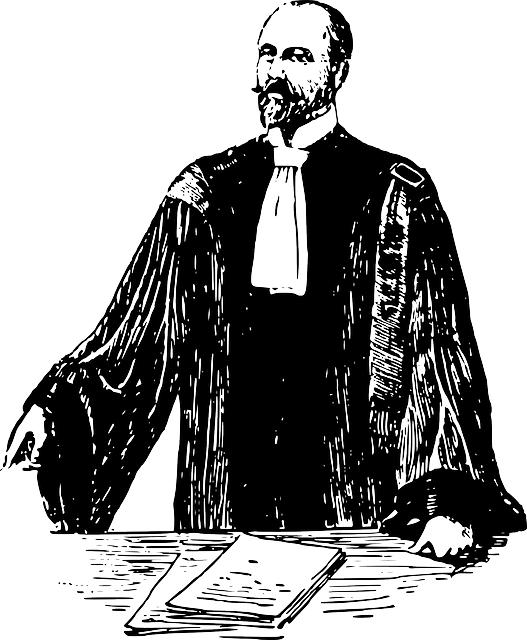Oregon's legal system grapples with contempt of court, a serious issue involving deliberate court order disobedience or justice obstruction. Oregon attorneys and legal experts provide vital guidance on recognizing and defending against such charges. Key factors in determining contempt include valid orders, willful violation, intent, and impact on proceedings. Specializing in family law and civil disputes, local attorneys offer strategic defenses by examining order ambiguity, proper notice, good faith efforts, and extenuating circumstances. Notable cases like State v. Johnson (2018) and Smith v. Portland City Council (2020) have shaped Oregon's contempt laws, reflecting the interplay between court authority and attorney responsibilities. Legal experts emphasize professional responsibility in navigating these complex matters.
“Uncovering the Legal Landscape of Contempt in Oregon: Insights from Top Attorneys
Oregon’s legal system navigates a delicate balance with contempt of court, a powerful tool to maintain order. This article delves into the intricate world of legal perspectives on contempt, offering valuable insights from respected Oregon attorneys. We explore the definitions and legal framework surrounding contempt, dissecting when behavior crosses the line. Furthermore, we present defense strategies employed by Oregon lawyers to challenge these charges and analyze notable case studies that have shaped the state’s contempt laws. Discover expert opinions from within the legal community.”
- Understanding Contempt of Court in Oregon: Definitions and Legal Framework
- When is Behavior Considered Contemptuous? Key Factors from Oregon Lawyers
- Defense Strategies: How Oregon Attorneys Challenge Contempt Charges
- Case Studies: Notable Contempt Cases and Their Impact on Oregon Law
Understanding Contempt of Court in Oregon: Definitions and Legal Framework

Contempt of court is a serious matter that holds significant weight in Oregon’s legal system. It refers to the willful failure or refusal to comply with a court order or to obstruct justice, and it can be punished by fines, imprisonment, or both. The legal framework surrounding contempt is designed to ensure that courts maintain their authority and integrity while upholding the rule of law.
Oregon attorneys play a crucial role in navigating these complexities, offering insights into how the law is interpreted and applied. The state’s legal experts emphasize that contempt can arise from various actions, including failing to appear in court, disobeying a subpoena, or disrupting judicial proceedings. Understanding the nuances of this offense is essential for both plaintiffs and defendants, as it directly impacts the outcome of legal disputes. Professional opinions on contempt in Oregon provide valuable guidance, ensuring individuals are fully informed about their rights and responsibilities within the legal process.
When is Behavior Considered Contemptuous? Key Factors from Oregon Lawyers

When is Behavior Considered Contemptuous? Key Factors from Oregon Lawyers
In Oregon, contempt of court is a serious legal matter that occurs when an individual or entity willfully fails to comply with a court order or engages in conduct that obstructs justice. To determine if behavior constitutes contempt, several key factors are considered by Oregon attorneys and legal experts. First, there must be a valid court order in place, clearly outlining the expectations and obligations of the respondent. Second, the alleged contemnor must have had knowledge of the order and willfully violated it. This includes situations where an individual ignores or deliberately disregards the court’s directives.
Oregon lawyers emphasize that intent plays a significant role in contempt cases. A finding of contempt requires proof beyond a reasonable doubt that the party acted with bad faith or willful disregard for the court’s authority. Additionally, the impact of the contemnor’s actions on the judicial process is evaluated. Behavior that seriously interferes with the administration of justice, such as disruptions during proceedings or failure to provide evidence as ordered, can be deemed contemptuous. Understanding these factors is crucial for navigating legal perspectives on contempt from Oregon lawyers and ensuring compliance with court orders.
Defense Strategies: How Oregon Attorneys Challenge Contempt Charges

Oregon attorneys specializing in family law and civil disputes offer valuable insights into the complex world of contempt charges. When faced with allegations of contempt, a strategic defense is crucial. These legal experts employ various tactics to challenge such accusations, ensuring fairness and justice for their clients. One common strategy involves scrutinizing the underlying court orders or agreements to determine if there was any ambiguity that could lead to a reasonable misinterpretation by the accused.
They may also argue that the alleged contemner did not have proper notice of the specific requirements or consequences, especially in cases where language barriers or limited legal representation exist. Additionally, Oregon lawyers might present evidence demonstrating good faith efforts to comply with court orders and highlight any extenuating circumstances or significant changes in circumstances since the order was issued.
Case Studies: Notable Contempt Cases and Their Impact on Oregon Law

Oregon’s legal landscape regarding contempt offers a fascinating glimpse into the state’s judicial history and the evolving role of attorneys. Case studies of notable contempt cases have significantly shaped Oregon law, providing valuable insights for both Oregon attorneys and those interested in understanding the complexities of this legal domain.
One such case that garnered substantial attention was State v. Johnson (2018), where an Oregon attorney faced charges for contempt after willfully ignoring a court order. This instance highlighted the delicate balance between maintaining court authority and preserving an advocate’s duties to their client. The case led to discussions among legal experts in Oregon, who emphasized the importance of professional responsibility and the need for clear guidelines on when contempt charges are appropriate. Another impactful case, Smith v. Portland City Council (2020), involved a civil rights attorney challenging local ordinances, resulting in a lengthy dispute that ultimately reached the Oregon Supreme Court. This case study underscores the potential for legal strategies to evolve from seemingly simple contempt matters, with far-reaching implications on civil liberties and legal practice.






